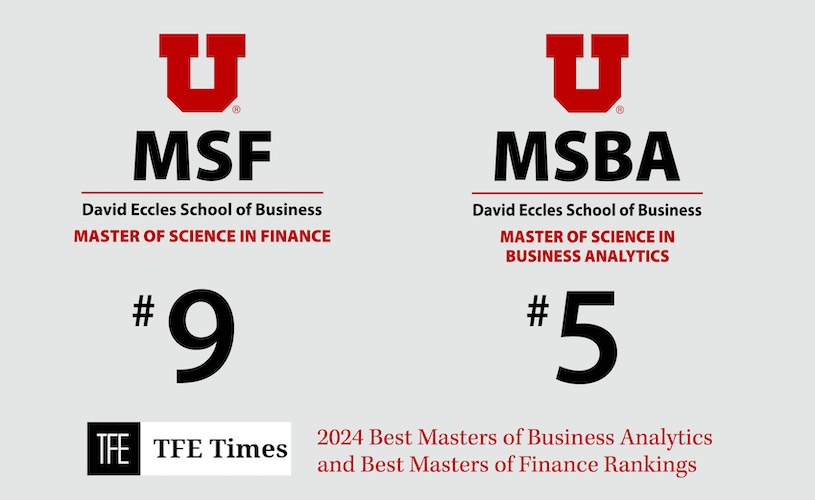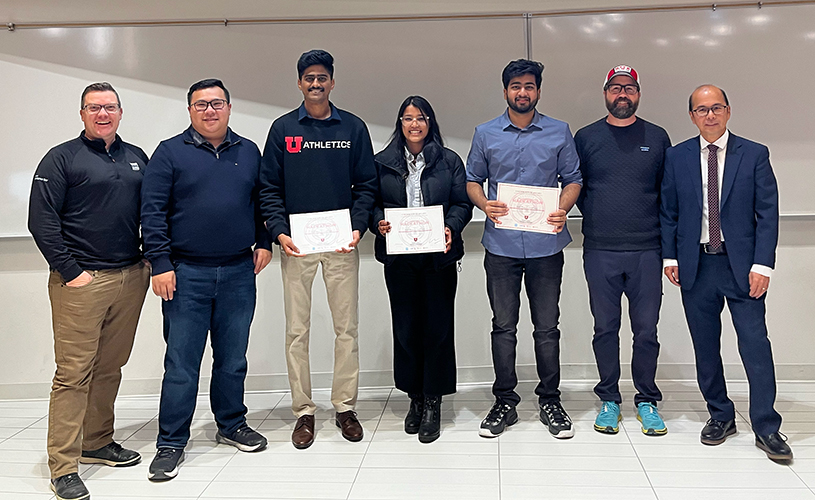Department of Operations and Information Systems
The Department of Operations & Information Systems (OIS) understands it’s one thing to create complex information systems and processes, and it’s another to know how to manage them in a way that makes a business more efficient, effective, and competitive. Employees with these skills are considered invaluable assets to any company. In addition, careers in information systems and operations can be the most financially rewarding in the marketplace.
Two distinct fields of study, Information Systems and Operations & Supply Chain, are housed within the Department of Operations & Information Systems and offer several degree options.

Information Systems
Technology is vital to the success of every business, and companies need professionals who can deploy technology to meet strategic business objectives. Focused on the intersection of business and technology, Information Systems provides tools and training that differentiate business graduates in today’s technology market.
Operations & Supply Chain
Leading companies rely on Operations & Supply Chain professionals to create high-quality products and services while minimizing waste to reduce costs. They are ultimately responsible for running the business efficiently and profitably.
OIS Faculty
Respected as some of the best in their field, Eccles School faculty are skilled teachers, innovative researchers, and global thought leaders who are shaping the strategic pioneers of the future and transforming business practices worldwide. View faculty.
Faculty Research Seminars
The Department of Operations & Information Systems allows top scholars to share their cutting-edge research with faculty and doctoral students. View upcoming and archived seminars.
OIS Conferences
OIS hosts or co-hosts three winter conferences: the Utah Winter Operations Conference, the Product/Service Innovation (PSI) Conference, and the Winter Conference on Business Analytics at or near one of Utah’s fabulous ski resorts featuring winter activities such as skiing and snow-shoeing.
Beyond the Classroom
Operations & Supply Chain Club
The Operations & Supply Chain (OSC) Club promotes career-building activities including career development and resume workshops, world-class company visits, networking events with OSC business leaders, state and national case competitions, renowned industry speaker series, and more.
Department of Operations Management & Information Systems
OIS creates leaders who know how to manage complex information systems and processes.
Join us at upcoming information sessions, employer-related and mentorship events, and other Eccles events.











